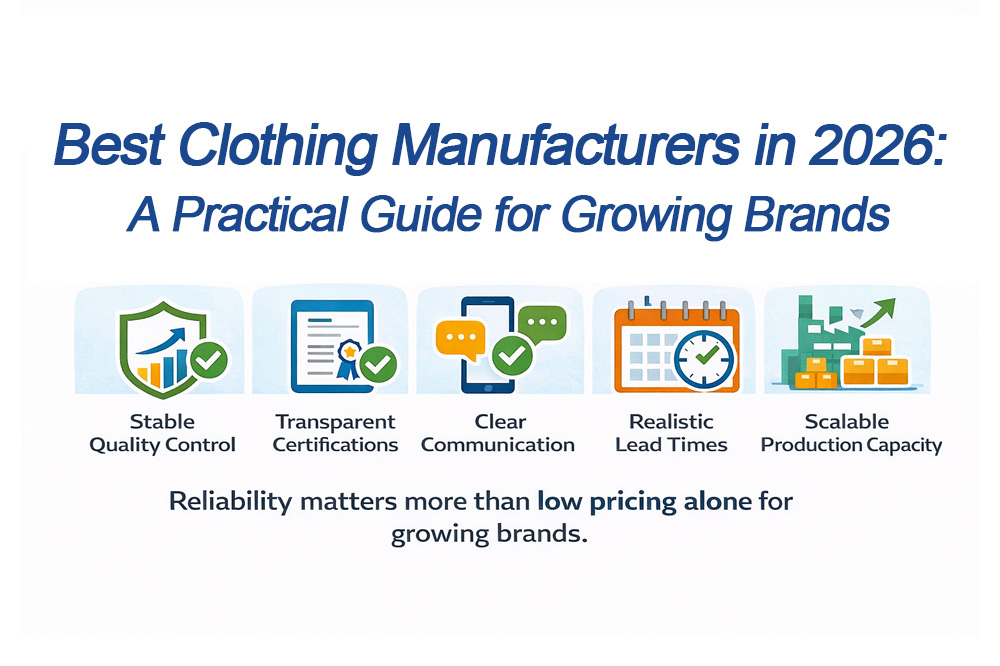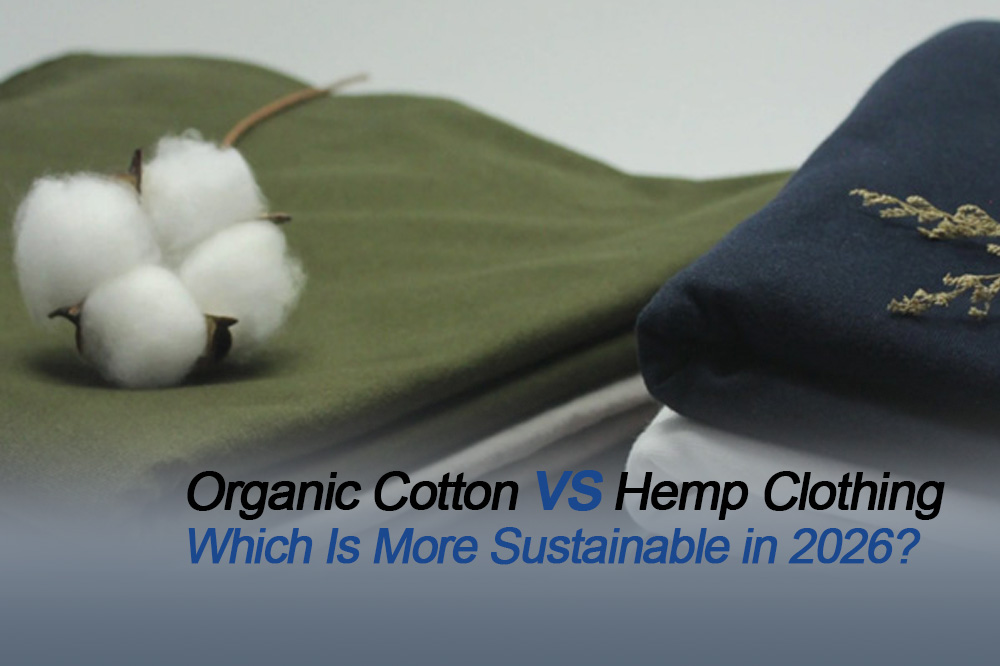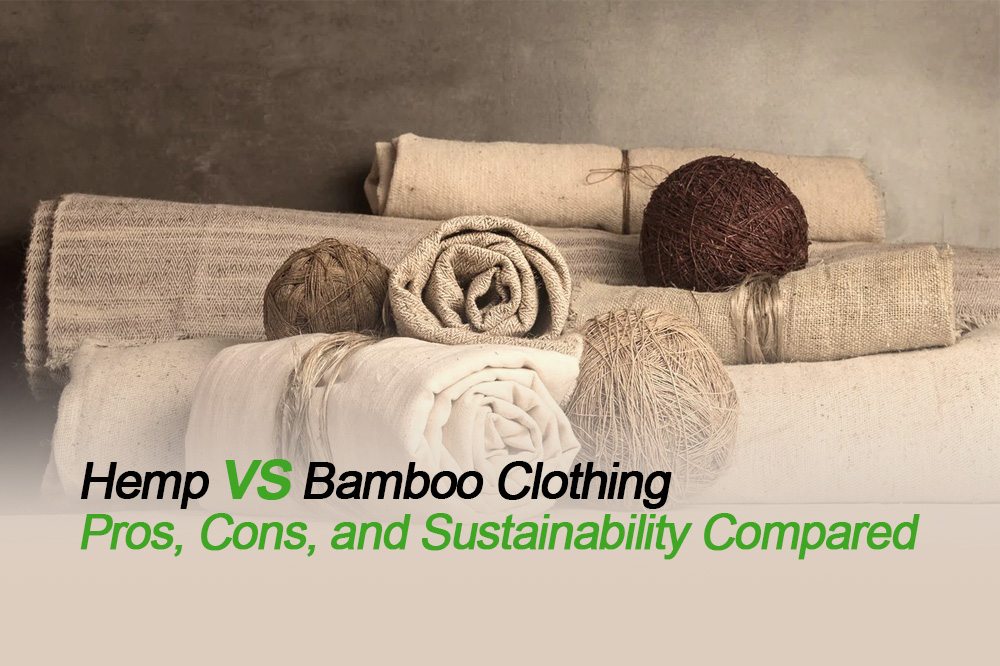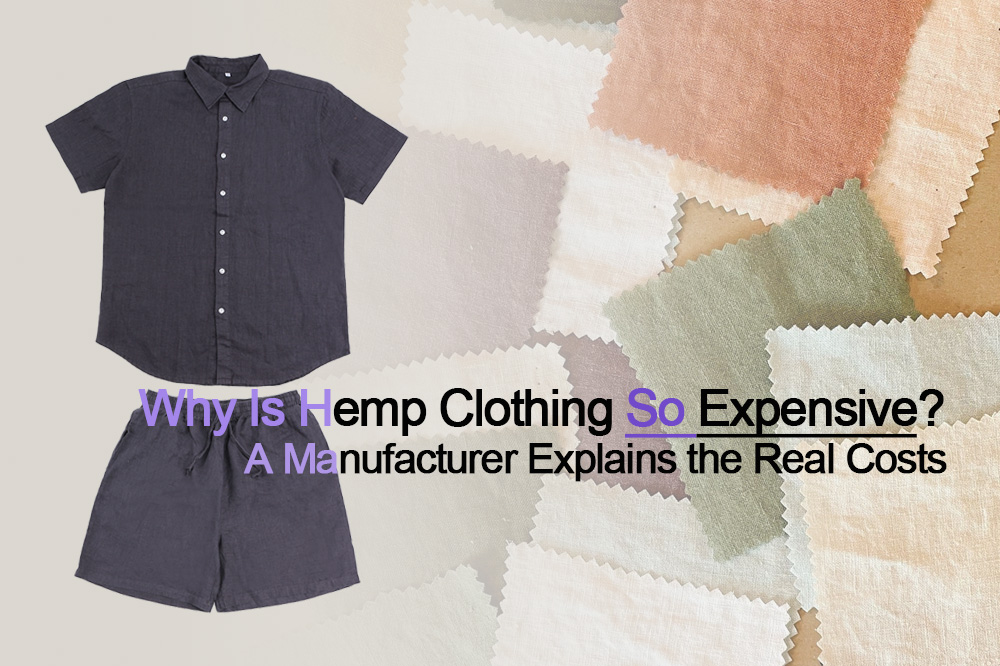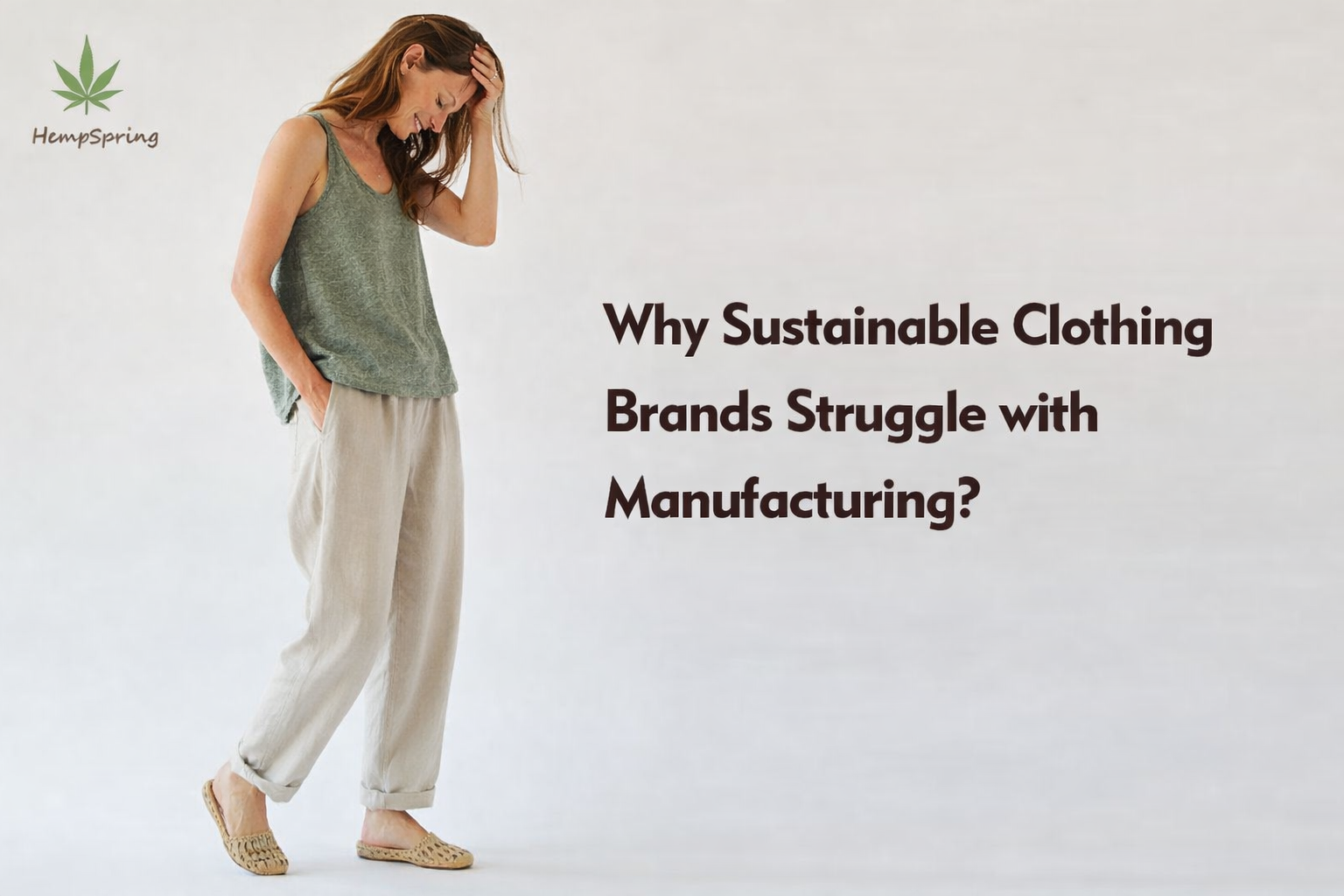
Hemp fabric is increasingly being seen as a top choice for sustainable clothing. But is it really the best option out there? Let’s explore the benefits and considerations of using hemp fabric in clothing, alongside other sustainable fabric alternatives.
Hemp fabric is a natural, durable, and eco-friendly material that has been used for centuries. It’s biodegradable, requires less water and pesticides compared to conventional cotton, and is highly sustainable. However, it’s essential to compare it with other fabrics to determine if it should be your first choice for sustainable clothing.
Now that we understand the benefits of hemp fabric, let’s dive into some important considerations for those interested in sourcing sustainable clothing.
Where do I look for clothing manufacturers with a low MOQ?
Finding a clothing manufacturer that can produce eco-friendly fabrics in small batches is key for many businesses. Let’s explore some options to consider.
If you're searching for clothing manufacturers with low MOQ, platforms like Alibaba, local manufacturers, or specific eco-friendly factories specializing in organic cotton, bamboo, and hemp fabrics are great places to start.

When sourcing clothing with low MOQ, platforms like Alibaba or eco-conscious manufacturers with specific fabric expertise are your best bet. Many sustainable fabric manufacturers offer flexibility in order sizes, which allows businesses with a smaller scale to avoid the high minimums typically required by larger manufacturers.
For instance, at Hempspring, we offer a low MOQ of just 100 pieces, allowing brands to test products before scaling up production. This can be incredibly helpful for businesses that want to test different designs and fabrics without overcommitting.
Another good practice is reaching out to manufacturers who have a proven track record with sustainable fabrics like hemp, bamboo, or organic cotton. Ensure they offer custom services and have experience working with smaller businesses.
Many eco-conscious manufacturers offer tailored services, from small runs to complete product design and branding, making it easier for businesses to get exactly what they need, without large upfront costs.
By focusing on low MOQ options, you can also test different fabric blends (like bamboo-cotton mixes or hemp blends) to find the best fit for your brand’s sustainability goals.
Are some fabrics more sustainable than others?
Not all fabrics are created equal when it comes to sustainability. Let’s compare some of the most popular eco-friendly fabrics.
Fabrics like hemp, organic cotton, and bamboo are more sustainable than conventional fabrics. Hemp, in particular, requires less water and no pesticides, while bamboo grows quickly and can be processed into biodegradable fabrics.
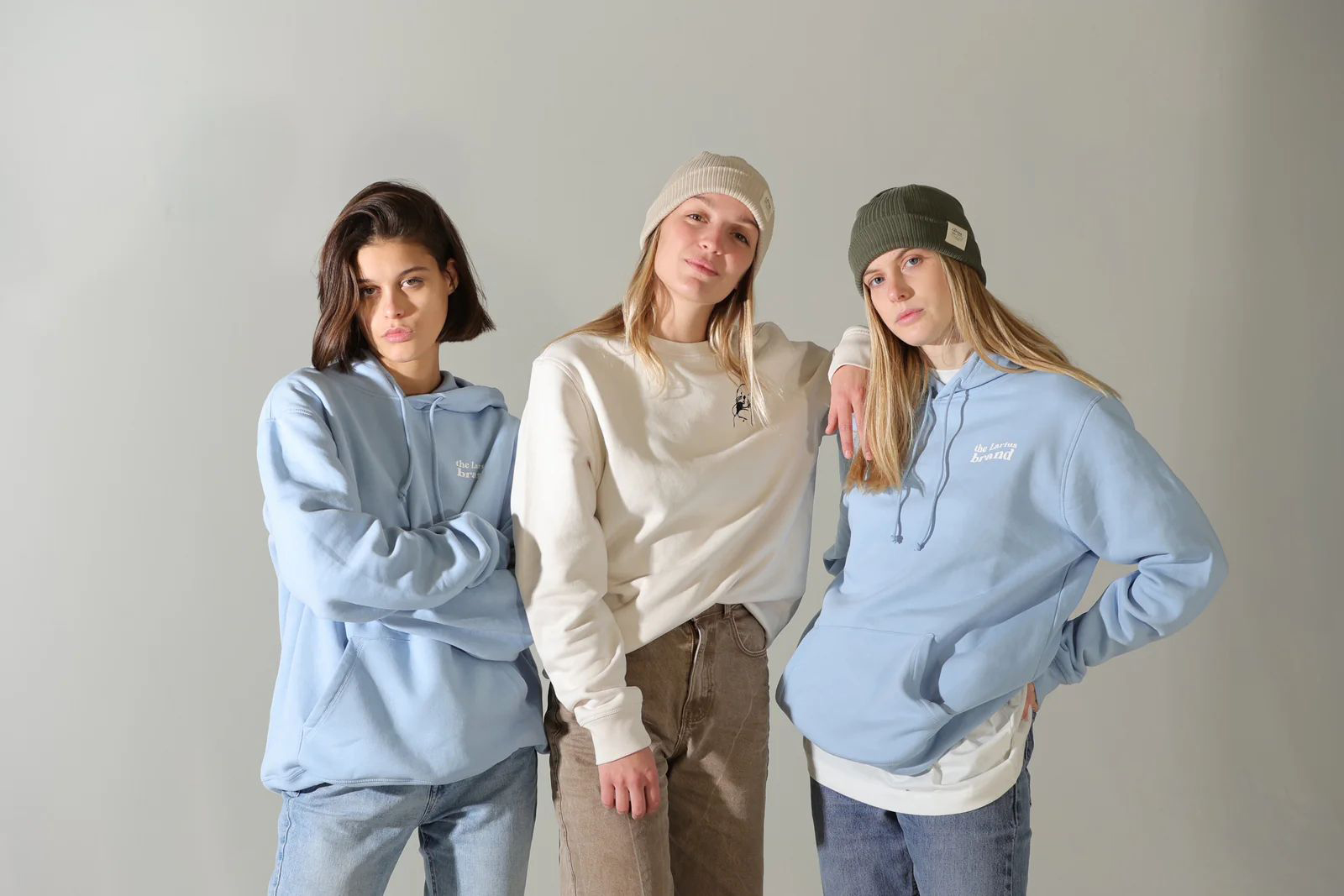
The sustainability of a fabric depends on various factors, including water usage, pesticide use, and the production process.
-
Hemp: Hemp is one of the most eco-friendly fabrics, requiring little water, no pesticides, and growing quickly. Its natural fibers are also biodegradable and durable, making it ideal for long-lasting garments.
-
Organic Cotton: Unlike conventional cotton, organic cotton is grown without harmful pesticides, and it uses less water in its production. However, it still requires more water than hemp. Nevertheless, its widespread availability and comfort make it a popular sustainable option.
-
Bamboo: Bamboo fabric is created from the pulp of the bamboo plant and is considered sustainable due to bamboo’s rapid growth rate. However, the process used to turn bamboo into fabric can be chemically intensive unless processed in a specific, eco-friendly way.
When selecting a sustainable fabric, it’s important to understand the full life cycle of the fabric, from raw material sourcing to how it’s processed and disposed of at the end of its life. Choosing a fabric like hemp, which has a relatively low environmental impact across all stages, may be the best option.
What international clothing brands are certified by fair trade?
Many global brands are now embracing fair trade practices in their clothing production. Which brands are leading the way?
Fair trade-certified brands ensure ethical working conditions and environmental sustainability. Some well-known brands include Patagonia, People Tree, and Fair Indigo.

Fair trade certification ensures that brands prioritize ethical labor practices and environmental sustainability throughout their supply chains. This certification is an important consideration for both consumers and businesses looking to make a positive impact.
-
Patagonia: Known for its commitment to sustainability, Patagonia offers a range of fair trade certified clothing and has been a pioneer in eco-friendly business practices.
-
People Tree: A pioneer in ethical fashion, People Tree offers a variety of sustainable, fair trade certified garments made from organic cotton and other eco-friendly materials.
-
Fair Indigo: Another leader in the fair trade space, Fair Indigo focuses on organic cotton, bamboo, and other sustainable materials for their clothing lines.
These brands are not only certified by fair trade organizations but also implement sustainable practices in their production and sourcing, helping ensure fair wages and ethical working conditions for their workers.
What are the cons of sustainable fashion?
While sustainable fashion has many benefits, there are also some challenges to consider. Let’s take a closer look at the cons.
Sustainable fashion can be more expensive due to the high costs of eco-friendly materials, and there may be limited availability of sustainable fabrics in some regions.
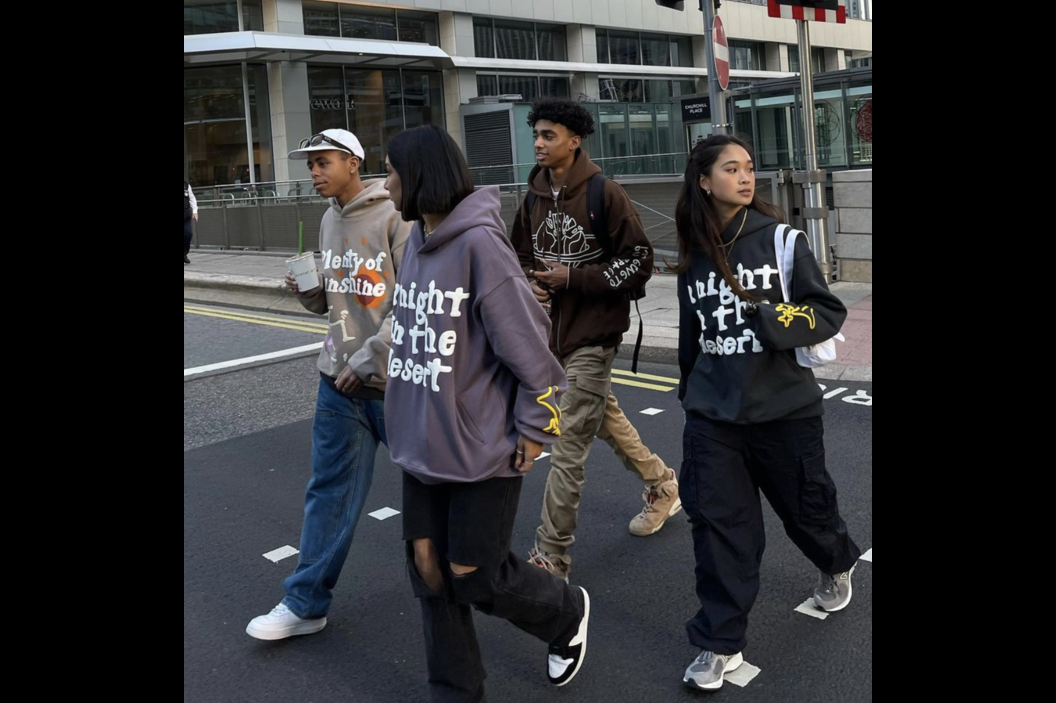
Sustainable fashion offers a great opportunity to contribute to environmental conservation, but it’s not without its challenges.
-
Higher Costs: The use of organic materials, ethical labor practices, and eco-friendly production processes often results in higher costs. For small businesses, this can mean a higher price point for consumers.
-
Limited Availability: Certain sustainable fabrics, like hemp and organic cotton, may not be as widely available as traditional fabrics, limiting options for manufacturers in some regions.
-
Market Perception: Despite growing awareness of the environmental impact of fashion, sustainable clothing can still be perceived as niche or less stylish by some consumers, limiting its appeal.
These challenges can be mitigated with strategic planning and strong marketing to highlight the value and quality of sustainable clothing.
Conclusion
Hemp fabric is a strong contender for sustainable clothing, offering numerous environmental benefits. However, it’s important to compare different fabrics and weigh the challenges of sustainable fashion to make the best choice for your brand and customers.

